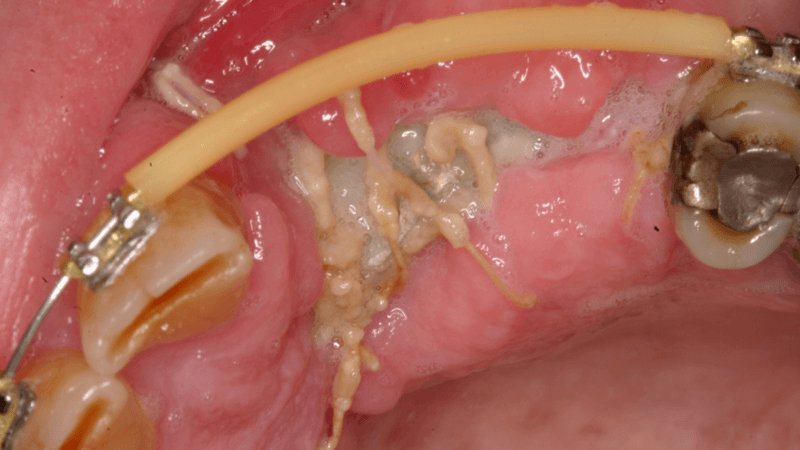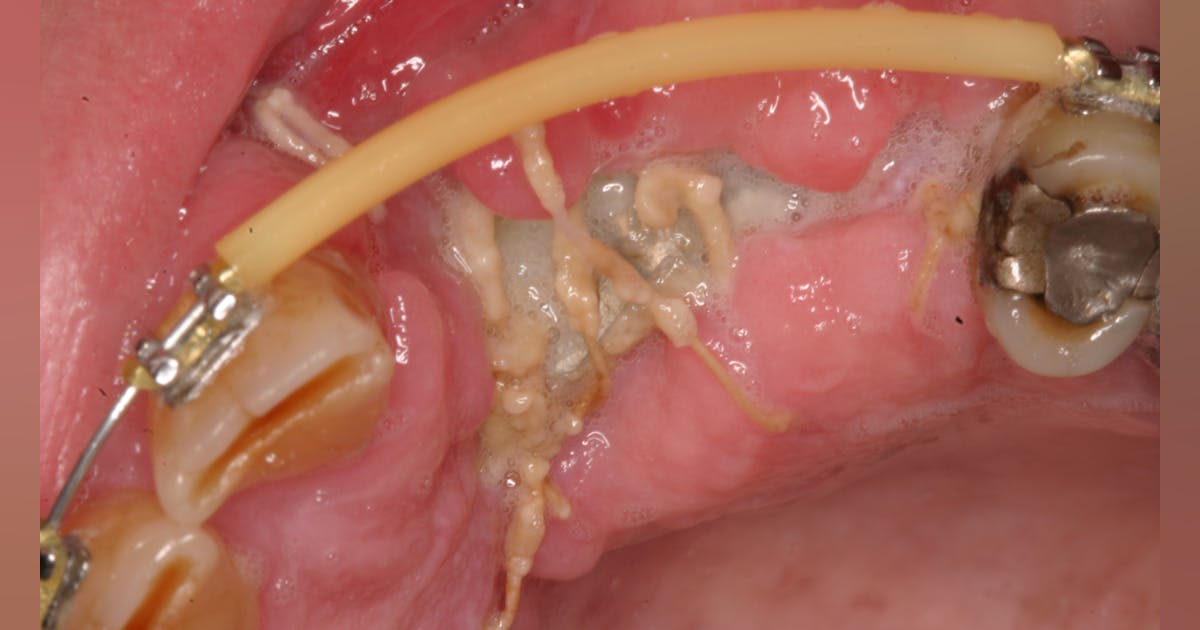
Dental implant surgery usually doesn’t require stitches, thanks to modern advancements in technology and techniques. Instead of traditional stitches, self-dissolving sutures or special adhesives are commonly used to close incisions, promoting faster healing and eliminating the need for stitch removal. Dental implants offer a permanent solution for missing teeth by placing a titanium post into the jawbone, creating a strong foundation for a replacement tooth or dental crown. This post gradually fuses with the bone, resulting in a natural-looking and functional tooth. While some cases may involve stitches, they are often unnecessary, and the dentist will decide based on individual circumstances. Following post-operative care instructions is crucial to ensure proper healing and reduce potential complications.

Do Dental Implants Require Stitches?
Dental implants have become a popular solution for replacing missing teeth. Not only do they offer a permanent and natural-looking solution, but they also provide functionality and stability. However, many people wonder whether dental implants require stitches during the placement process. In this article, we will explore this common question and provide you with the information you need to know.
The Dental Implant Procedure
- Dental Implant Procedure Overview:
- The dental implant procedure involves several steps, beginning with the placement of a titanium implant into the jawbone.
- Local anesthesia is administered to ensure your comfort during the procedure.
- Implant Placement Process:
- During implant placement, the oral surgeon creates an incision in the gum tissue, exposing the underlying bone.
- The titanium implant is carefully inserted into the jawbone.
- Following implant placement, the gum tissue is stitched back together to promote proper healing.
- Importance of Stitches:
- Dental implants typically require stitches to close the incision made in the gum tissue during the implant placement.
- Stitches play a vital role in holding the tissue in place and facilitating the healing process.
- Types of Stitches:
- The choice of stitches may vary, with some surgeons using dissolvable stitches that naturally break down over time.
- Others may opt for sutures that require removal after a specified period.
- The choice of stitches is determined by the oral surgeon based on individual needs and preferences.
Benefits of Stitches in Dental Implant Surgery
Stitches play a crucial role in the success of dental implant surgery. Here are some of the benefits of using stitches during the procedure:
1. Promotes Healing: Stitches help to close the incision site, allowing the gum tissue to heal properly. This promotes faster healing and reduces the risk of infection.
2. Prevents Bleeding: Stitches help to control bleeding by securely closing the incision. This minimizes the amount of blood loss during the procedure.
3. Protects the Implant: Stitches hold the gum tissue in place, providing stability and protection for the implant as it integrates with the jawbone.
4. Enhances Aesthetics: Properly placed stitches can help to achieve a more natural-looking result by ensuring that the gum tissue contours around the implant appropriately.
The Healing Process
After the dental implant surgery, the healing process begins. During this time, it is essential to follow your dentist’s instructions to promote proper healing and reduce the risk of complications.
The stitches used during the procedure will gradually dissolve or be removed by your dentist, depending on the type used. It is crucial to keep the surgical area clean and avoid applying excessive pressure or force to the implant site. Your dentist may provide you with specific guidelines on oral hygiene and dietary restrictions to ensure optimal healing.
Final Thoughts
In conclusion, dental implants do require stitches during the placement procedure. Stitches play a vital role in promoting healing, preventing bleeding, protecting the implant, and enhancing aesthetics. While it is normal to have some discomfort and swelling after the surgery, following your dentist’s instructions will help ensure a successful recovery. If you have any concerns or questions about the dental implant process, it is best to consult with your oral surgeon or dentist for personalized advice and guidance.
Key Takeaways: Do Dental Implants Require Stitches?
- Not all dental implant procedures require stitches.
- Stitches may be necessary if there is a large incision or gum tissue needs to be closed.
- Modern implant techniques often use minimally invasive methods that do not require stitches.
- Stitches are typically used to aid in healing and ensure proper gum tissue closure.
- Your dentist will determine if stitches are necessary based on your specific implant procedure.
Frequently Asked Questions
Are stitches necessary after dental implant surgery?
After dental implant surgery, stitches are often used to close the incision made in the gum tissue. However, the need for stitches can vary depending on the specific case. Some dental implant procedures may not require stitches if a smaller incision is made or if a different technique is used. Your dentist or oral surgeon will determine whether stitches are necessary based on factors such as the complexity of the procedure and your individual healing capabilities.
Stitches are typically used to promote proper healing and minimize the risk of infection. They help to hold the gum tissue together and protect the surgical site. While stitches are commonly used, there are cases where they may not be required. Your dental professional will provide specific instructions on whether stitches are necessary in your particular situation.
What type of stitches are used for dental implants?
There are different types of stitches that can be used for dental implant surgery, including dissolvable stitches and non-dissolvable stitches. Dissolvable stitches are made from materials that break down over time, eliminating the need for their removal. Non-dissolvable stitches, on the other hand, require a follow-up appointment to have them removed.
The type of stitches used will depend on various factors, such as the surgeon’s preference, the location of the implant, and the patient’s individual needs. Dissolvable stitches are often preferred as they eliminate the need for a separate stitch removal appointment. Your dental professional will determine the most appropriate type of stitches for your specific case.
How long do stitches stay in after dental implant surgery?
- Stitch Duration Varies: The duration stitches remain after dental implant surgery depends on the type used and incision healing. Dissolvable stitches typically break down within 7 to 10 days, eliminating removal needs.
- Non-Dissolvable Stitches: Non-dissolvable stitches may require removal, typically after 7 to 14 days. Your dentist or oral surgeon will provide specific instructions regarding when to expect this removal.
- Professional Guidance: Your dental professional will offer precise guidance on stitch dissolution or removal. Adhering to these instructions is crucial for proper healing and minimizing complications.
Do stitches cause discomfort after dental implant surgery?
It is normal to experience some discomfort or sensitivity around the surgical site after dental implant surgery, including where stitches are placed. However, stitches themselves should not cause significant discomfort. If you experience excessive pain, swelling, or bleeding around the stitches, it is important to contact your dental professional for further evaluation.
Proper post-operative care, including following your dentist’s instructions for oral hygiene and taking any prescribed medications, can help minimize discomfort and promote healing. If you have any concerns about the stitches or their impact on your comfort, be sure to discuss them with your dental professional.
What can I do to promote healing and minimize the need for stitches after dental implant surgery?
While the need for stitches after dental implant surgery is often determined by the complexity of the procedure and other factors, there are steps you can take to promote healing and potentially minimize the need for stitches. These include:
1. Following your dentist’s post-operative instructions for oral hygiene, including proper brushing and flossing techniques.
2. Avoiding smoking and alcohol consumption, as they can hinder the healing process.
3. Eating a soft diet and avoiding hard or chewy foods that may put stress on the surgical site.
4. Taking any prescribed medications as directed, including pain relievers and antibiotics.
5. Attending all scheduled follow-up appointments to ensure proper healing and address any concerns.
By following these guidelines, you can help create an optimal environment for healing and potentially reduce the need for stitches after dental implant surgery.
How Long Does It Take To Heal After Dental Implant Surgery?
Final Summary: The Truth About Stitches and Dental Implants
The necessity for stitches in dental implant procedures varies based on multiple factors. Some cases may still require stitches for proper healing and support, but advancements in dental technology have enabled many procedures to be stitch-free. The decision to use stitches ultimately rests with the dentist, who considers factors like implant type, location, and patient preferences. Therefore, during a dental implant consultation, stitches may be discussed, but the possibility of a stitch-free procedure should also be considered. In summary, the use of stitches in dental implant procedures is case-specific, with dentists customizing their approach. Regardless of stitches, the primary aim remains a successful and comfortable dental implant experience. To regain your smile and confidence, consult a reputable dental professional for guidance through the process.
Call or Book appointment online
:Ace Dental Care Alpharetta office: 678-562-1555 - Book Now
Ace Dental Care Norcross office: 770-806-1255 - Book Now
Disclaimer
This blog post was generated by artificial intelligence. The content of this post may not be accurate or complete, and should not be relied upon as a substitute for professional advice. If you have any questions about the content of this post, please contact us.
We are constantly working to improve the accuracy and quality of our AI-generated content. However, there may still be errors or inaccuracies. We apologize for any inconvenience this may cause.





